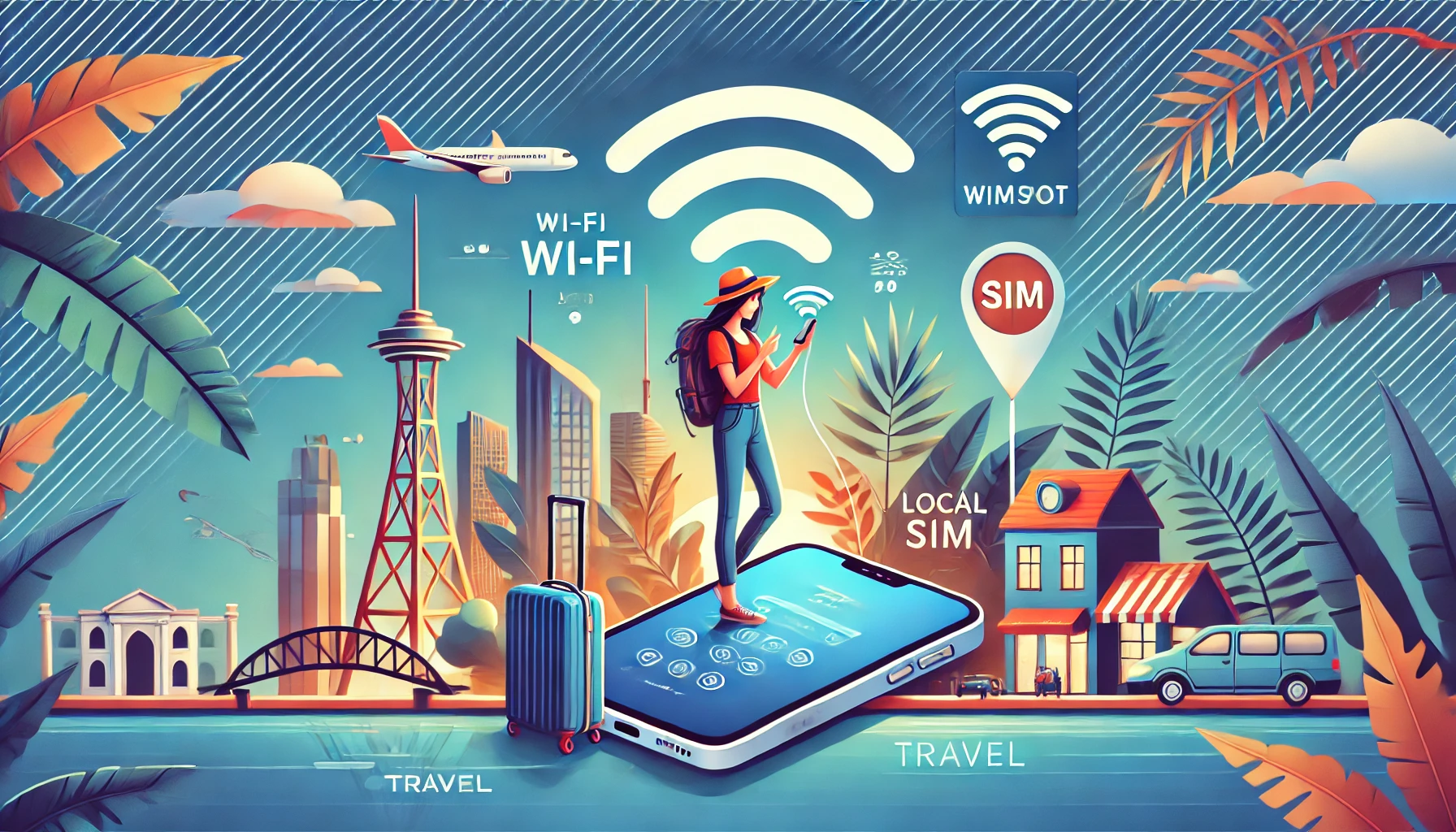How to Stay Connected While Traveling: Wi-Fi Hotspots vs. Local SIMs

In today’s digitally connected world, staying online while traveling is almost a necessity. Whether it’s for navigating unfamiliar streets, keeping in touch with loved ones, sharing your adventures on social media, or working remotely, reliable internet access can make or break your trip. Two popular options for staying connected are portable Wi-Fi hotspots and local SIM cards. Both have their pros and cons, so understanding their differences can help you choose the best option for your travel needs.
Portable Wi-Fi Hotspots
A Wi-Fi hotspot is a small, pocket-sized device that provides internet access by connecting to local cellular networks and broadcasting a Wi-Fi signal. Here are the advantages and disadvantages:
Advantages
- Multi-Device Connectivity: A single hotspot can connect multiple devices, such as smartphones, laptops, and tablets, making it ideal for group travel.
- Ease of Use: Hotspots don’t require phone configuration or swapping SIM cards. You simply turn them on and connect.
- Global Coverage: Many hotspots work in multiple countries without needing additional setups, especially if they use global roaming plans.
Disadvantages
- Rental Costs: Hotspot rental fees can add up, especially for long trips. Some providers also charge extra for data usage beyond a certain limit.
- Battery Life: Portable hotspots need to be charged regularly, and running out of battery can leave you disconnected.
- Network Reliability: The internet speed depends on the local cellular network coverage, which might be spotty in remote areas.
Best For
- Group travelers who need multiple devices connected.
- Short trips to several countries.
Local SIM Cards
A local SIM card replaces your existing SIM card to provide data, calling, and texting services through a local cellular provider. Here’s what you need to know:
Advantages
- Affordable Data Plans: Local SIM cards often offer cheaper data rates compared to international roaming or hotspot rentals.
- Better Coverage: As they connect directly to local networks, SIM cards typically offer more reliable coverage in the destination country.
- No Device Dependency: Your phone’s battery lasts as usual since there’s no additional device to charge.
Disadvantages
- Phone Compatibility: Your phone must be unlocked to use a different SIM card. Some older phones may not be compatible with certain networks.
- Hassle of Setup: You need to buy and activate a SIM card, which can take time, especially if there’s a language barrier.
- Single Device Access: Only the device with the SIM card benefits from the data plan unless you create a hotspot on your phone.
Best For
- Solo travelers with unlocked phones.
- Long-term stays in a single country.
Which Option is Right for You?
The choice between a Wi-Fi hotspot and a local SIM card depends on several factors:
- Duration of Travel: For shorter trips, Wi-Fi hotspots can be convenient, while local SIM cards are more economical for longer stays.
- Number of Devices: If you need to connect multiple devices, a Wi-Fi hotspot is a better choice.
- Travel Itinerary: For multi-country trips, hotspots with global coverage are easier, but for a single-country stay, a local SIM is often more reliable and cost-effective.
- Phone Compatibility: Ensure your phone is unlocked if you opt for a SIM card.
Pro Tips for Staying Connected
- Compare Costs: Research hotspot rental fees and SIM card prices before traveling to make an informed decision.
- Backup Connectivity: Consider downloading offline maps and key travel documents in case of temporary disconnection.
- Check Data Needs: Estimate your data usage to avoid exceeding limits on either option.
- Use Wi-Fi Smartly: Take advantage of free Wi-Fi at cafes, hotels, and airports to save data.
Traveling doesn’t mean you have to disconnect from the world. With the right approach—whether using a portable Wi-Fi hotspot or a local SIM card—you can stay connected seamlessly and focus on enjoying your adventures.